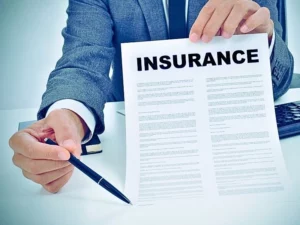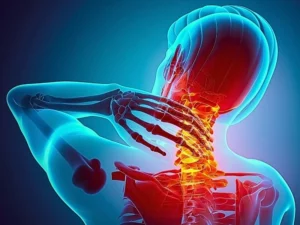Motorcycle laws in Illinois promote safe riding practices and reduce the risk of catastrophic injuries for motorcyclists. Illinois motorcycle laws address various aspects of motorcycle operation, rider behavior, and safety equipment. Laws mandating helmet use ensure that motorcyclists are protected from head injuries and can save lives in the event of a crash. Licensing requirements ensure that riders receive proper training, making them more skilled and aware of the rules on the roads. Prohibitions against lane splitting and impaired riding help prevent reckless behavior and potential collisions with other vehicles, safeguarding both motorcyclists and other road users. Additionally, motorcycle insurance requirements ensure that injured parties can receive compensation, alleviating financial burdens during challenging times. By enforcing these laws and creating a safer riding environment, motorcycle laws protect people and contribute to a safer and more responsible motorcycle riders.

What to Do After a Motorcycle Accident
First and foremost, check yourself and others involved for any injuries. If anyone is seriously injured, call for emergency medical assistance immediately. If possible, move your motorcycle and yourself to a safe area away from traffic to avoid further accidents or injuries.
Next, you will need to contact the local police or emergency services to report the accident, even if it seems minor. Having an official accident report can be valuable for insurance claims and legal purposes.
You should exchange contact, insurance, and vehicle details with the other parties involved in the accident. Also, collect contact information from any witnesses present at the scene. It is also a good idea to take photos of the accident scene, the motorcycle’s position, and any damages to vehicles or property. This documentation can be helpful for insurance claim. You should avoid discussing or admitting fault at the scene. The details of the accident will be investigated by the authorities and insurance companies.
Even if you believe you are not seriously injured, it’s advisable to get a medical evaluation. Some injuries may not be immediately apparent, and having a medical record can be important for insurance claims later on. Keep copies of all documents related to the accident, including medical records, repair estimates, and correspondence with insurance companies or other parties.
When to Consult an Attorney After a Motorcycle Accident
If you’ve been involved in a motorcycle accident, it’s essential to know when you should consult a motorcycle accident lawyer to protect your rights and ensure you receive fair compensation for any injuries or damages. Here are some situations where consulting an attorney is necessary:
- Serious injuries: If you sustained significant injuries in the motorcycle accident that require medical treatment, hospitalization, or long-term care, it’s crucial to consult an attorney. Severe injuries can lead to substantial medical bills, lost wages, and pain and suffering, and an attorney can help you navigate the complexities of insurance claims and potential legal action.
- Permanent disabilities or disfigurement: If the accident resulted in permanent disabilities or disfigurement, your life may be significantly impacted, and you should seek legal representation to pursue compensation for the long-term consequences.
- Liability dispute: If there’s a dispute over who was at fault for the motorcycle accident, it can complicate the insurance claim process. Insurance companies might try to shift blame or downplay their policyholder’s responsibility. Having an attorney can help protect your interests and gather evidence to establish liability.
- Multiple parties involved: If more than one vehicle was involved in the accident or if there were pedestrians or other parties impacted, determining fault and liability can become complex. An attorney can help navigate the legal complexities in such cases.
- Uninsured or underinsured motorists: If the at-fault driver doesn’t have insurance or has insufficient coverage to compensate you adequately, an attorney can help explore other avenues for compensation and protect your rights.
- Insurance company disputes: Insurance companies may undervalue your claim or deny it altogether. An attorney can negotiate with the insurance company on your behalf to ensure you receive fair compensation.
In addition, if the motorcycle accident resulted in the death of a loved one, consulting an attorney is essential to pursue a wrongful death claim and seek compensation for the loss.
Legal procedures can be overwhelming, especially if you’re dealing with injuries and recovery. An experienced personal injury lawyer can handle the legal aspects while you focus on your healing.
Laws Regarding Motorcycles
The freedom of riding on the open road with your motorcycle comes with rules and responsibilities. Laws and regulations are put in place to ensure the safety of both motorcyclists and other road users. There are several important laws and regulations that all Illinois motorcycle riders must be aware of and adhere to.
One of the most critical safety measures for motorcyclists in Illinois is the helmet law. According to the law, all motorcycle riders, regardless of age or experience, are required to wear helmets while operating their bikes. Helmets must meet the standards set by the U.S. Department of Transportation to ensure they provide adequate protection in the event of an accident. This law aims to reduce the severity of head injuries and fatalities in motorcycle crashes, making it a vital aspect of motorcycle safety in Illinois.
Lane splitting, the act of a motorcyclist riding between two lanes of stopped or slow-moving traffic, is prohibited in Illinois. Motorcyclists are expected to stay within the same lane as other vehicles and follow the general flow of traffic. Lane splitting can be dangerous, especially at higher speeds, as it increases the risk of accidents and hampers the predictability of traffic patterns.
Illinois law mandates that motorcycles must be equipped with certain safety features and devices. Each motorcycle must have at least one headlight, taillight, and brake light, all of which must be in proper working order. Additionally, motorcycles are required to have mirrors on both sides to provide adequate rearview visibility for the rider. These safety requirements aim to enhance the visibility of motorcycles on the road, reducing the likelihood of collisions.
Like all motor vehicles, motorcycles in Illinois must be covered by liability insurance. The minimum insurance coverage includes liability for bodily injury and property damage. This ensures that if a motorcyclist is involved in an accident and found to be at fault, their insurance will help cover the costs of injuries and damages sustained by other parties. Having insurance not only protects motorcyclists legally, but also provides financial security in the event of an accident.
In Illinois, motorcycles are subject to noise restrictions. The law prohibits motorcycles from emitting excessive or unnecessarily loud noises, which can be a nuisance to others and lead to potential safety hazards. Motorcyclists should ensure their bikes comply with the state’s noise regulations and be mindful of the impact of loud exhaust systems on the surrounding environment and communities.
To legally operate a motorcycle in Illinois, individuals must obtain a Class M motorcycle license or a Class L motorcycle learner’s permit. To obtain a Class M license, riders must pass a written test, a vision test, and a road skills test. It is essential for all motorcyclists to be properly licensed to ensure they have the necessary knowledge and skills to handle their bikes safely.
Motorcycle laws in Illinois are designed to promote safety, responsibility, and awareness among motorcyclists. By adhering to these laws and regulations, motorcyclists can enjoy the freedom of the open road while minimizing the risks associated with motorcycle riding. Ultimately, it is the responsibility of every motorcyclist to stay informed about the laws and ride responsibly to make Illinois roads safer for everyone.
How to Prevent an Accident
There are several precautions you can take to prevent motorcycle accidents, including responsible riding and being aware of potential risks. Whether you are a seasoned rider or a beginner, implementing the following safety tips can significantly reduce the likelihood of accidents:
1. Wear Proper Safety Gear: Safety gear can provide crucial protection in the event of a crash, minimizing the risk of severe injuries.
2. Obey Traffic Laws: Respect all traffic laws and regulations, including speed limits, lane markings, and traffic signals. Avoid reckless behaviors such as speeding, weaving through traffic, or tailgating, as these increase the chances of accidents.
3. Be Visible: Ensure your motorcycle is equipped with functional lights and reflective materials to enhance visibility, especially while riding at night or in bad weather.
4. Maintain Your Motorcycle: Regularly inspect and maintain your motorcycle to ensure it is in proper working condition. Check the tires, brakes, lights, and other critical components before every ride.
5. Avoid Riding in Inclement Weather: Rain, snow, and other adverse weather conditions can make roads slippery and reduce visibility. If possible, avoid riding in such conditions.
In addition to following these guidelines, you should never ride a motorcycle under the influence of alcohol, drugs, or any substances that impair your judgment or reflexes. Riding while intoxicated is one of the leading causes of motorcycle accidents.







